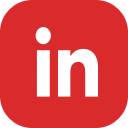Our Work @ Mouse
An Interview with Marc Lesser, Senior Director of Learning Design, Mouse
Could you tell me a bit about your work?
Mouse works on the opportunity gap, for young people looking to participate in not just STEM [science, technology, engineering, math], but in all kinds of identities that involve creative technologies.
Whether they want to be community activists, doctors, software engineers, it’s equally important to us that they all have an opportunity to see technology as a creative tool and a thinking tool.
I try and make the distinction between Mouse as a STEM organization and who we are at our roots, which is really a youth development organization.
We do that in a couple different ways. We have a web platform that serves up everything from 15 minute to 5- to 7-week course content for mostly beginner and intermediate levels, although we do some advanced design and engineering work.
We partner. Beyond Mouse’s network, we are a thought partner to national and global organizations who want to create a bigger digital literacy imprint — in all of its forms. We think about how practitioners and organizations can come together, boost their impact, leverage each other, and figure out how to make change together. We have program modules that take place in schools and after-school sites, like clubs and classes, that focus on everything from the foundations of technology literacy to game design. We also do some programming and computation literacy. For all of this, the specifics take on different shapes depending where we are. Mouse is a national organization, founded in New York. I lead the Learning Design team. We also have an affiliate on the West Coast who runs programs in about 100-odd schools. Beyond that, in any given grant year, we have programs in about 12 to 15 states, most of them with a smaller footprint, aside from New York, California, and Minnesota, where we have a bigger presence
Are Mouse’s courses self-directed?
They can be self-directed for the right student. They’re designed to be either. We try to make them facilitator-optional wherever possible. For kids who are getting into things like electronics for the very first time, they can certainly self-lead the course, but to go a little deeper on a lot of the concepts it really does take a mentor of some kind.
In your work, can you tell me about a time where you felt a real sense of success?
There are a few different kinds of success. Hearing from young people when they say things like, “I always wanted to lead or thought I could be a leader, but now I know I can, and better understand what my capabilities are.” That’s a huge indicator of success for us. “I was interested in code, or interested in graphic design. Now I know have some facility there.” Those are big successes for us. Hearing that self-report on how an experience has impacted, not only what a person can do, but their perspective about what their potential is. It’s tremendous. We feel a tremendous amount of success when we hear about young people who came to us in their sophomore year of high school and didn’t really have aspirations to go into science, technology, or engineering. Then they end up getting accepted to a software engineering program or a design program in their senior year. That’s kind of a magical moment. They came to us saying, “I think I’m going to be a cop, like my brother was,” or whatever it is, and then they become a Posse Scholar, which is a big deal in the US.
To me, it’s not really that different if they end up at Carnegie Mellon, or at City University. To me, them having come in with absolutely no clue what a portfolio would look like — were they to be interested in applying to engineering or design school — and then starting their freshman year in one those schools, that’s another type of huge success.
Another type of success — that’s a lot of fun for us — is when we run into alum who went through our more advanced high school programs. We run into them in the world doing amazing things. For example, two years ago I was working on a training for teachers at MakerBot in Brooklyn. It’s a big open office, and people milling through the office were stopping by and seeing what we were up to. At a certain point, a woman walks through and recognizes one of the teachers — the woman is now part of the MakerBot software development team. Her interest in technology started with our middle school programs. Mouse has been around long enough that that type of stuff happens now. It’s really magical when that kind of thing happens. And then there are the students who go into a political science track — it’s not just technology and engineering — those successes are really important to us too.
About Marc: Marc works at the intersection of education, technology, and youth development, serving as Senior Director of Learning Design at Mouse, a national youth development nonprofit that empowers students to create with technology, solve problems, and make change. Since 2008, Marc has led the design and development of web-based and live learning environments, drawing on his earlier work as an educator, trainer, and specialist in the area of arts, media, and technology education. In 2012, Marc was named a National School Boards Association “20-to-Watch” Program, which recognizes national leaders in education and technology. He is also the co-founder of Emoti-Con! New York City’s Youth Digital Media & Technology Festival.
About StoryEngine: The Mozilla Foundation is creating a better way to gather feedback and accelerate learning. We’re calling it StoryEngine. Designed to systematically collect, analyze, and leverage the stories emerging from our networks, StoryEngine will help us support open Internet leaders and advocates, demonstrate the impact of our work, and act on opportunities and challenges.








